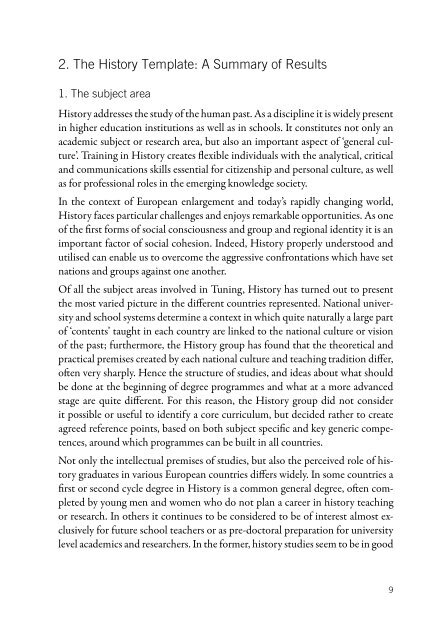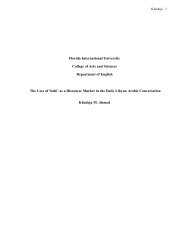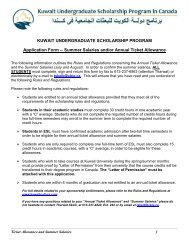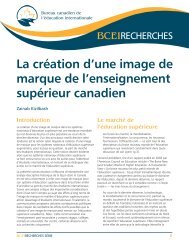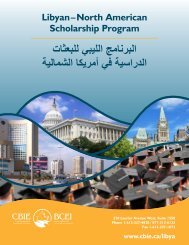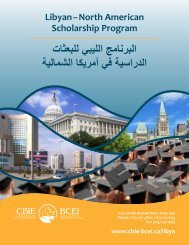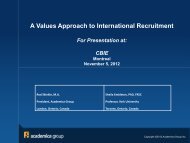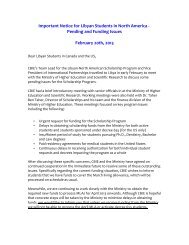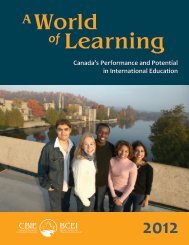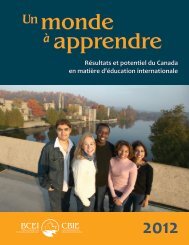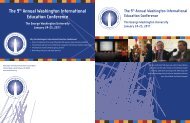Creating a New Historical Perspective: EU and the Wider World ...
Creating a New Historical Perspective: EU and the Wider World ...
Creating a New Historical Perspective: EU and the Wider World ...
You also want an ePaper? Increase the reach of your titles
YUMPU automatically turns print PDFs into web optimized ePapers that Google loves.
2. The History Template: A Summary of Results<br />
1. The subject area<br />
History addresses <strong>the</strong> study of <strong>the</strong> human past. As a discipline it is widely present<br />
in higher education institutions as well as in schools. It constitutes not only an<br />
academic subject or research area, but also an important aspect of ‘general culture’.<br />
Training in History creates flexible individuals with <strong>the</strong> analytical, critical<br />
<strong>and</strong> communications skills essential for citizenship <strong>and</strong> personal culture, as well<br />
as for professional roles in <strong>the</strong> emerging knowledge society.<br />
In <strong>the</strong> context of European enlargement <strong>and</strong> today’s rapidly changing world,<br />
History faces particular challenges <strong>and</strong> enjoys remarkable opportunities. As one<br />
of <strong>the</strong> first forms of social consciousness <strong>and</strong> group <strong>and</strong> regional identity it is an<br />
important factor of social cohesion. Indeed, History properly understood <strong>and</strong><br />
utilised can enable us to overcome <strong>the</strong> aggressive confrontations which have set<br />
nations <strong>and</strong> groups against one ano<strong>the</strong>r.<br />
Of all <strong>the</strong> subject areas involved in Tuning, History has turned out to present<br />
<strong>the</strong> most varied picture in <strong>the</strong> different countries represented. National university<br />
<strong>and</strong> school systems determine a context in which quite naturally a large part<br />
of ‘contents’ taught in each country are linked to <strong>the</strong> national culture or vision<br />
of <strong>the</strong> past; fur<strong>the</strong>rmore, <strong>the</strong> History group has found that <strong>the</strong> <strong>the</strong>oretical <strong>and</strong><br />
practical premises created by each national culture <strong>and</strong> teaching tradition differ,<br />
often very sharply. Hence <strong>the</strong> structure of studies, <strong>and</strong> ideas about what should<br />
be done at <strong>the</strong> beginning of degree programmes <strong>and</strong> what at a more advanced<br />
stage are quite different. For this reason, <strong>the</strong> History group did not consider<br />
it possible or useful to identify a core curriculum, but decided ra<strong>the</strong>r to create<br />
agreed reference points, based on both subject specific <strong>and</strong> key generic competences,<br />
around which programmes can be built in all countries.<br />
Not only <strong>the</strong> intellectual premises of studies, but also <strong>the</strong> perceived role of history<br />
graduates in various European countries differs widely. In some countries a<br />
first or second cycle degree in History is a common general degree, often completed<br />
by young men <strong>and</strong> women who do not plan a career in history teaching<br />
or research. In o<strong>the</strong>rs it continues to be considered to be of interest almost exclusively<br />
for future school teachers or as pre-doctoral preparation for university<br />
level academics <strong>and</strong> researchers. In <strong>the</strong> former, history studies seem to be in good


